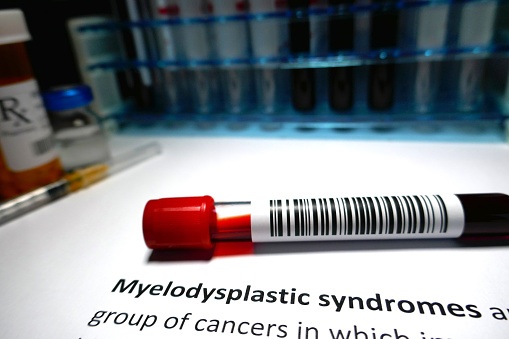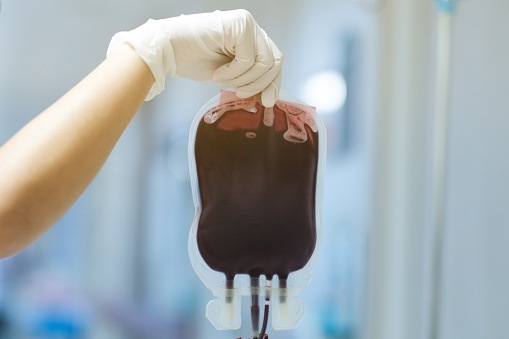
Azacitidine and nivolumab (aza-nivo) improved response in treatment-naive myelodysplastic syndromes (MDS) and showed superior overall survival (OS) in intermediate-risk disease compared with azacitidine and ipilimumab (aza-ipi), according to a study presented at the 66th American Society of Hematology Annual Meeting & Exposition.
The triplet combination of azacitidine, ipilimumab, and nivolumab (aza-ipi-nivo) did not significantly improve outcomes and increased toxicity and posttransplant mortality, said presenting author, Ian Bouligny, MD, of the University of Texas MD Anderson Cancer Center.
The analysis included 66 patients aged 18 years and older (median age, 68 years; range, 39–86) who received aza-ipi (n=33), aza-nivo (n=20), or aza-ipi-nivo (n=13).
Among the participants, the majority were transfusion dependent (76%); the most common driver mutation was TP53 (46%; P=.003); the median International Prognostic Scoring System-Molecular (IPSS-M) score was 1.59 (range, –1.55 to 4.08); and a significant proportion of patients had very poor-risk disease (47%; P=.042) according to the revised IPSS.
The study reported the following overall response rate (ORR; complete response [CR], CR with limited count recovery [CRl], or hematologic improvement), composite CR rate (CRc; CR or CRl), and median OS for each treatment group.
| Treatment | ORR | CRc | Median OS (P=.666) |
| Aza-ipi | 27% | 13.3% | 22.7 months |
| Aza-nivo | 55% | 40% | 14.3 months |
| Aza-ipi-nivo | 54% | 46% | 11.8 months |
The ORR did not differ significantly between groups, whereas the CR rate was significantly improved with aza-nivo compared with aza-ipi (40% vs 7%; P=.009).
In what authors described as a “landmark analysis,” aza-nivo was associated with superior OS compared with aza-ipi among patients with IPSS-R intermediate-risk MDS (not reached vs 25.6 months, P=.049).
Secondary analyses suggested IPSS-R intermediate-risk was associated with significantly improved survival compared with high- or very high-risk (77.7 months vs 10.9 months; P<.001), and ava-ipi-nivo was associated with inferior OS after transplant compared with the doublet regimens (13.7 months vs 49.6 months; P=.008).
“Here, we present the mature data of three immunotherapy-based hypomethylating agent combinations…aza-nivo was associated with improved CR and—for IPSS-R intermediate-risk MDS—OS compared to aza-ipi,” Dr. Bouligny and colleagues summarized.
Reference
Bouligny IM, Montalban-Bravo G, Sasaki K, et al. A phase II trial of azacitidine with ipilimumab, nivolumab, or ipilimumab and nivolumab in previously untreated myelodysplastic syndromes. Abstract #4601. Presented at the 66th American Society of Hematology Annual Meeting & Exposition; December 7-10, 2024; San Diego, California.







 © 2025 Mashup Media, LLC, a Formedics Property. All Rights Reserved.
© 2025 Mashup Media, LLC, a Formedics Property. All Rights Reserved.